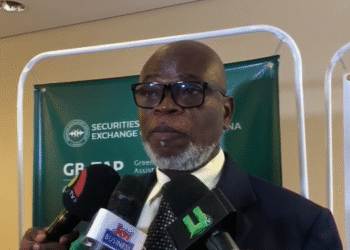Ghana has moved into the top five ranking in the latest Absa Africa Financial Market Index report, placing fourth, despite COVID-19 stalling progress across many parts of the continent.
According to the report, Ghana scored an overall score of 62 out of the maximum 100 score – a recognition of the positive strides in the development of the Ghanaian market. This is an improvement on last years’ sixth position with a score of 59.
Remarkably, Ghana scored 50 and above in 5 out of the 6 pillars measured. According to experts, Ghana has done well with some policy measures and as a result, boosted its overall standing. Some of the policies and initiatives that contributed to Ghana’s improved performance include: adoption of and enforceability of standard master agreements, improved access to foreign exchange through forward FX auctions by the Bank of Ghana, and market transparency works through daily publication of financial asset prices.
The report, however, pointed out Ghana’s weakest link. Ghana scored low in the capacity of local investors. The country recorded a score of 21 out of a possible 100, making it the only area in which it didn’t do well in.
The index, now in its fifth year, throws light on financial markets across Africa and benefits from continued engagement with policymakers, regulators, market participants and industry experts; providing the latest information about developments in the region.
African markets endured a second difficult year since the outbreak of COVID-19, with illiquid markets continuing to dampen index scores amid the pandemic. Innovations in sustainable finance and digital transformation could be key to reinvigorating markets as important initiatives are underway across markets in these areas.
Out of 23 countries included in the index, 19 scored lower than last year. This decline, according to the report, reflects more difficult market conditions, methodological changes and the inclusion of environmental, social and governance indicators in the index. Despite the fall in scores, few examples reveal an underlying deterioration in the policy, regulatory or developmental environment in any of the index countries.
The inclusion of Environmental, social, and Governance (ESG) initiatives in the formal scoring highlights important developments and opportunities in this area, though it impacted the scores of those countries for which work in this initiative is at an early stage. Only 13 countries in the index have ESG-focused policies in financial markets and nine countries have introduced sustainable finance products.
South Africa, Mauritius and Nigeria maintained their lead in the index, though with scores slipping in 2021 for all these three countries.
Ghana and Uganda enter the top five for the first time, with both earning massive points for progress in Pillar 6: Enforceability of standard master agreements.
The Absa-OMFIF Africa Financial Markets Index in conclusion, finds that African markets are still innovating amid liquidity struggles.
The Absa-Monetary and Financial Institutions Forum (OMFIF) is an independent think tank for central banking, economic policy and public investment through extensive quantitative research and data analysis in association with Absa Group Limited.
READ ALSO: Ghana-Switzerland Trade Volume Reached $26.5 Billion Over A Decade























